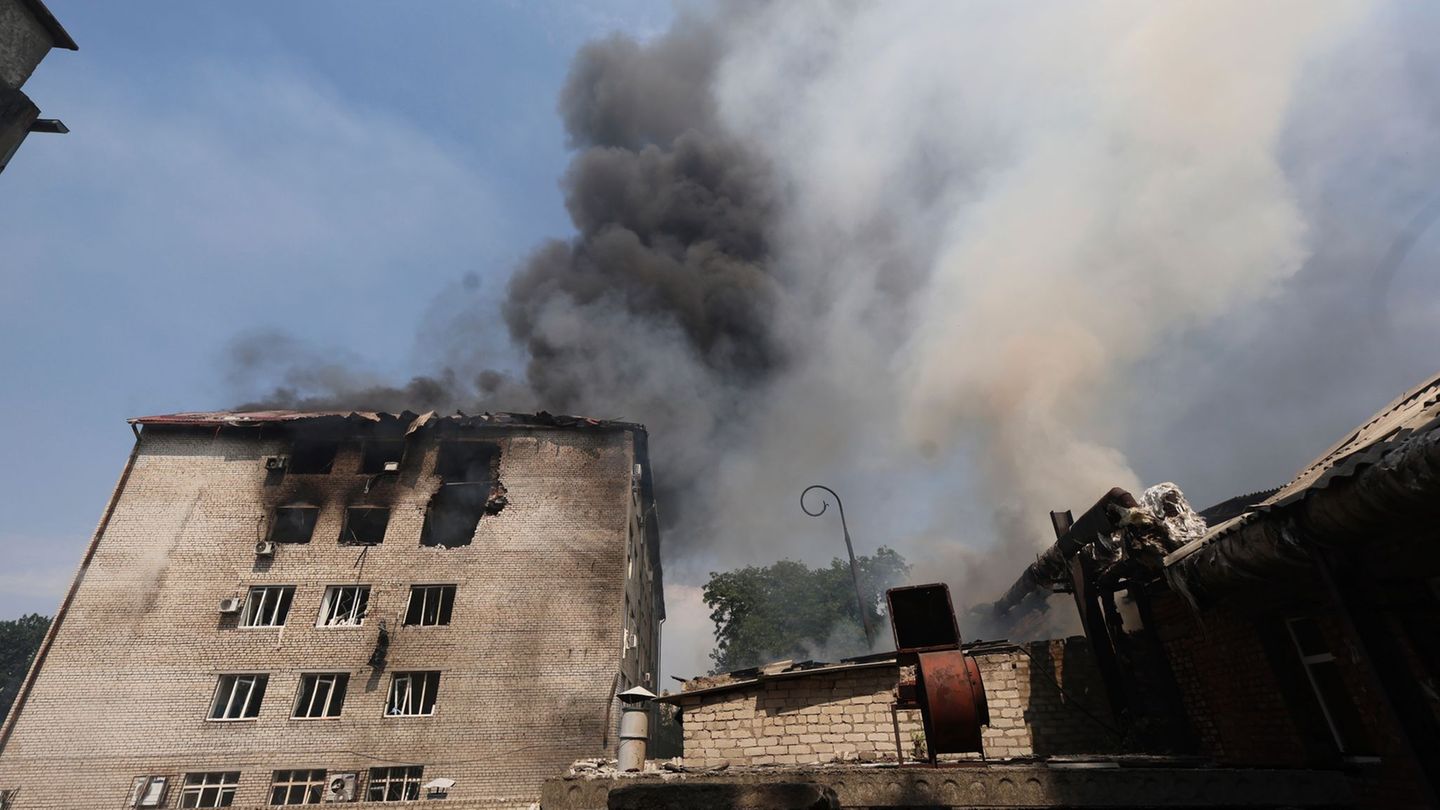Migration across the Mediterranean
New defeat for Meloni: refugees are allowed to go to Italy
Copy the current link
Italy’s right-wing government failed in its first attempt to have asylum applications decided outside the EU. Then she followed up. Now a court is opposing it again.
It is a new defeat for Italy’s Prime Minister Giorgia Meloni: her right-wing government has also failed in its second attempt with the plan to have decisions made on the asylum applications of Mediterranean refugees outside the EU. A court overturned the detention of seven migrants from Egypt and Bangladesh in a camp in Albania.
The men are now expected to be allowed to disembark in Italy this Tuesday – their original destination. At the same time, the Italian judges appealed to the European Court of Justice (ECJ).
The migrants were stopped by the Italian navy near the island of Lampedusa last week while fleeing from Africa to Europe. A ship then took them to Albania on Friday so that Italian officials there could decide on their asylum applications. In five cases the applications have already been rejected, so they should actually be sent back. But that has now been stopped by the judiciary. Regardless, hundreds of refugees continue to arrive in Italy every week after an extremely dangerous journey across the Mediterranean.
New warehouses in Albania are now empty most of the time
Meloni’s government’s “Albania model” with camps for migrants outside the EU is controversial in Italy and beyond. However, some European governments are considering following suit. Actually, up to 36,000 asylum applications are supposed to be decided on in the non-EU country Albania every year. Meloni also promoted this at the most recent EU summit in Budapest last week. For the leader of the right-wing party Fratelli d’Italia (Brothers of Italy), the judges’ decision in Rome is a serious setback.
The two new warehouses have only been in operation since last month. So far, apart from the staff, they have been empty most of the time. A first attempt by the Meloni government to decide on fast-track asylum procedures there had already failed in mid-October: a total of 16 men from Egypt and Bangladesh were finally allowed to continue to Italy. A court in Rome had ruled that both countries were not safe countries of origin.
European Court of Justice defines safe countries of origin
The right-wing government in Rome then issued a decree establishing a new list of 19 supposedly safer countries of origin – including Egypt and Bangladesh. However, the European Court of Justice decided at the beginning of October that a country can only be classified as a safe country of origin if there is no threat of persecution anywhere there. The Italian courts also rely on this.
This has now become a heated dispute between the government and the judiciary. Deputy Prime Minister Matteo Salvini insulted the judges as “communists” after their first defeat. Regarding the renewed defeat, the right-wing politician now said: “This is another political judgment – not against the government, but against the Italians and their security.” The government now wants to take the case to the highest Italian court. However, other courts have already referred the case to the ECJ.
Court of Auditors examines costs
For many years, Italy has been one of the countries particularly affected by the refugee movement across the Mediterranean. Despite a significant decline, more than 50,000 people have landed on the Italian coast again this year after sometimes life-threatening crossings. There are always deaths.
Meloni came to government two years ago with a promise to massively limit irregular immigration. However, the opposition considers the “Albania model” to be completely overpriced and now sees the separation of powers between the government and the judiciary at risk. In addition, the left and human rights groups criticize the high costs – according to them, 20,000 euros per refugee. The Court of Auditors is now also checking whether the costs are appropriate.
dpa
Source: Stern
I have been working in the news industry for over 6 years, first as a reporter and now as an editor. I have covered politics extensively, and my work has appeared in major newspapers and online news outlets around the world. In addition to my writing, I also contribute regularly to 24 Hours World.




